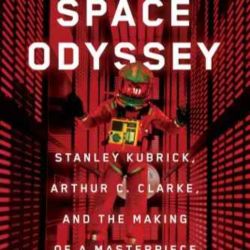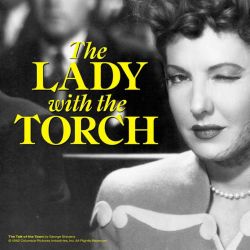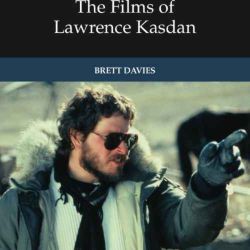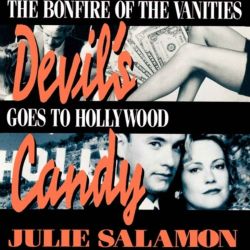Share

Writers on Film
Pamela Hutchinson talks The Red Shoes
Endlessly fascinating, dark and bright, The Red Shoes (1948) employs every branch of the cinematic arts to sweep the audience off its feet, invigorated by the transcendence of art itself, only to leave them with troubling questions. Representing the climax of Michael Powell and Emeric Pressburger's celebrated run of six exceptional feature films, the film remains a beloved, if unsettling and often divisive, classic.
Pamela Hutchinson's study of the film examines its breathtaking use of Technicolor, music, choreography, editing and art direction at the zenith of Powell and Pressburger's capacity for 'composed cinema'. Through a close reading of key scenes, particularly the film's famous extended ballet sequence, she considers the unconventional use of ballet as uncanny spectacle and the feminist implications of the central story of female sacrifice.
Hutchinson goes on to consider the film's lasting and wide-reaching influence, tracing its impact on the film musical genre and horror cinema, with filmmakers such as Joanna Hogg, Sally Potter, Martin Scorsese and Brian De Palma having cited the film as an inspiration.
More episodes
View all episodes

178. Venice Film festival Report 4: Joker: Folie à Deux
45:10||Season 1, Ep. 178Joker: Folie à Deux hits Cannes and I am joined by David Mouriquand and Amber Bryce of EuroNews to talk about Todd Phillips' sequel starring Lady Gaga and joaquin Phoenix, and if it can live up to expectations. Live from the 81st Venice Film Festival.
177. Venice Film Festival Report 3. Queer, The Room Next Door and The Brutalist
32:56||Season 1, Ep. 177Day 6 or 7 of the Venice Film Festival and David Mouriquand and Amber Brice from EuroNews join me to talk about The Brutalist, The Room Next Door and Queer.
176. Venice Film Festival: Report 2. Babygirl and Maria
38:17||Season 1, Ep. 176Angelina Jolie and Nicole Kidman are on the Lido with two new films which are going to put them back in the headlines. David Mouriquand from EuroNews joins me to discuss the films Maria and Babygirl in the second of our Venice reports.
175. Venice Film Festival: Report 1. Beetlejuice Beetlejuice
28:04||Season 1, Ep. 175David Mouriquand from EuroNews and Nicholas Bell from Eye on Cinema join John Bleasdale to talk about Tim Burton's Beetlejuice Beetlejuice, the opening film of the 81st edition of the Venice Film Festival.
174. Comedian and actor Chris Calogero on comedy, horror and movie clichés
01:06:25||Season 1, Ep. 174Chris Calogero became a viral sensation with his videos skewering movie clichés, so I had to get him on the podcast to talk police lieutenants and filthy coroners. His new comedy album HUSKY BOY can be ordered here and all the information you want is available from his site, here.
35. From the Archives: Michael Benson on Stanley Kubrick's 2001 A Space Odyssey
01:21:42||Season 1, Ep. 35John Bleasdale talks to Michael Benson on his book Space Odyssey: Stanley Kubrick, Arthur C Clarke and the Making of a Masterpiece.Buy the Book Here.The definitive story of the making of 2001: A Space Odyssey , acclaimed today as one of the greatest films ever made, and of director Stanley Kubrick and writer Arthur C. Clarke- "a tremendous explication of a tremendous film....Breathtaking" ( The Washington Post ).Fifty years ago a strikingly original film had its premiere. Still acclaimed as one of the most remarkable and important motion pictures ever made, 2001: A Space Odyssey depicted the first contacts between humanity and extraterrestrial intelligence. The movie was the product of a singular collaboration between Stanley Kubrick and science fiction visionary Arthur C. Clarke. Fresh off the success of his cold war satire Dr. Strangelove, Kubrick wanted to make the first truly first-rate science fiction film. Drawing from Clarke's ideas and with one of the author's short stories as the initial inspiration, their bold vision benefited from pioneering special effects that still look extraordinary today, even in an age of computer-generated images.In Space Odyssey , author, artist, and award-winning filmmaker Michael Benson "delivers expert inside stuff" ( San Francisco Chronicle ) from his extensive research of Kubrick's and Clarke's archives. He has had the cooperation of Kubrick's widow, Christiane, and interviewed most of the key people still alive who worked on the film. Drawing also from other previously unpublished interviews, Space Odyssey provides a 360-degree view of the film from its genesis to its legacy, including many previously untold stories. And it features dozens of photos from the making of the film, most never previously published."At last! The dense, intense, detailed, and authoritative saga of the making of the greatest motion picture I've ever seen ... Michael Benson has done the Cosmos a great service" (Academy Award-winning actor Tom Hanks).
173. 100 Years of Columbia Pictures: from Locarno
52:50||Season 1, Ep. 173Ehsan Khoshbakht, curator of the Retrospective: “How to tell the story of a leading Hollywood studio while both teasing out the nuances and stressing the significance of canonical titles worthy of continued celebration? This has been the main challenge for our 40-title retrospective mapping Columbia Pictures’ glorious rise from Poverty Row to major force in Hollywood. ‘Lady with the Torch’ is an unofficial history of Columbia Pictures that celebrates big names, Oscar winners, and era-defining films but pays equal attention to the B-unit and yet to be discovered masters. Think the fast-talking career women of screwball comedies or think existentialist cowboys, prophetic anti-fascist quickies or unsettling ‘problem pictures’. Sony's generosity means we will bring to Locarno new restorations of films by John Ford and Phil Karlson, among many other gems. Once upon a time there was a brilliant exchange between art and commerce, between the system and the artist, and this Retrospective will celebrate that.”Visit the site here.
172. Brett Davies talks Lawrence Kasdan
01:02:50||Season 1, Ep. 172Lawrence Kasdan has created some of the most influential films in Hollywood history. He is the screenwriter of such beloved blockbusters as The Empire Strikes Back (1980), Raiders of the Lost Ark (1981), The Bodyguard (1992), and The Force Awakens (2015). Simultaneously, he has gained critical acclaim as the director of pictures that dissect contemporary American society: Body Heat (1981), The Big Chill (1983), The Accidental Tourist (1988), and Grand Canyon (1991).Brett Davies is Associate Professor of English at Meiji University, Tokyo
29. Julie Salamon and the Devil's Candy
01:15:21||Season 1, Ep. 29John Bleasdale talks to Julie Salamon the author of The Devil's Candy, The Bonfire of the Vanities Goes to Hollywood. The book is available here. The book was also the basis for the podcast series The Plot Thickens which you can listen to here.“So much better, so much more fun, than the movie it is about that one must be thankful to the filmmakers for producing such a spectacle, if only so that this book could be written.”—Vogue When film director Brian De Palma invited author Julie Salamon to follow him on the set of The Bonfire of the Vanities, he had no idea that the fifty-million-dollar movie would become one of Hollywood’s biggest flops. The Devil’s Candy is the juicy, bestselling exposé that sent Hollywood honchos running for cover. Who was responsible for the last-minute casting change that cost four million dollars? Who knew that Melanie Griffith would show up halfway through the filming with a new set of breasts? Settle down in your front-row seat for a story that has more drama, hilarity, greed, folly, and ego than the movie that eventually ended up on the screen. Expertly reported and elegantly written, The Devil’s Candy is irresistible fun, a classic insider’s look at the movie business.